Tutoring at San Quentin helped UC Berkeley’s top senior define his future
Christopher Ying, 2024 University Medalist, plans a legal career advocating for marginalized groups
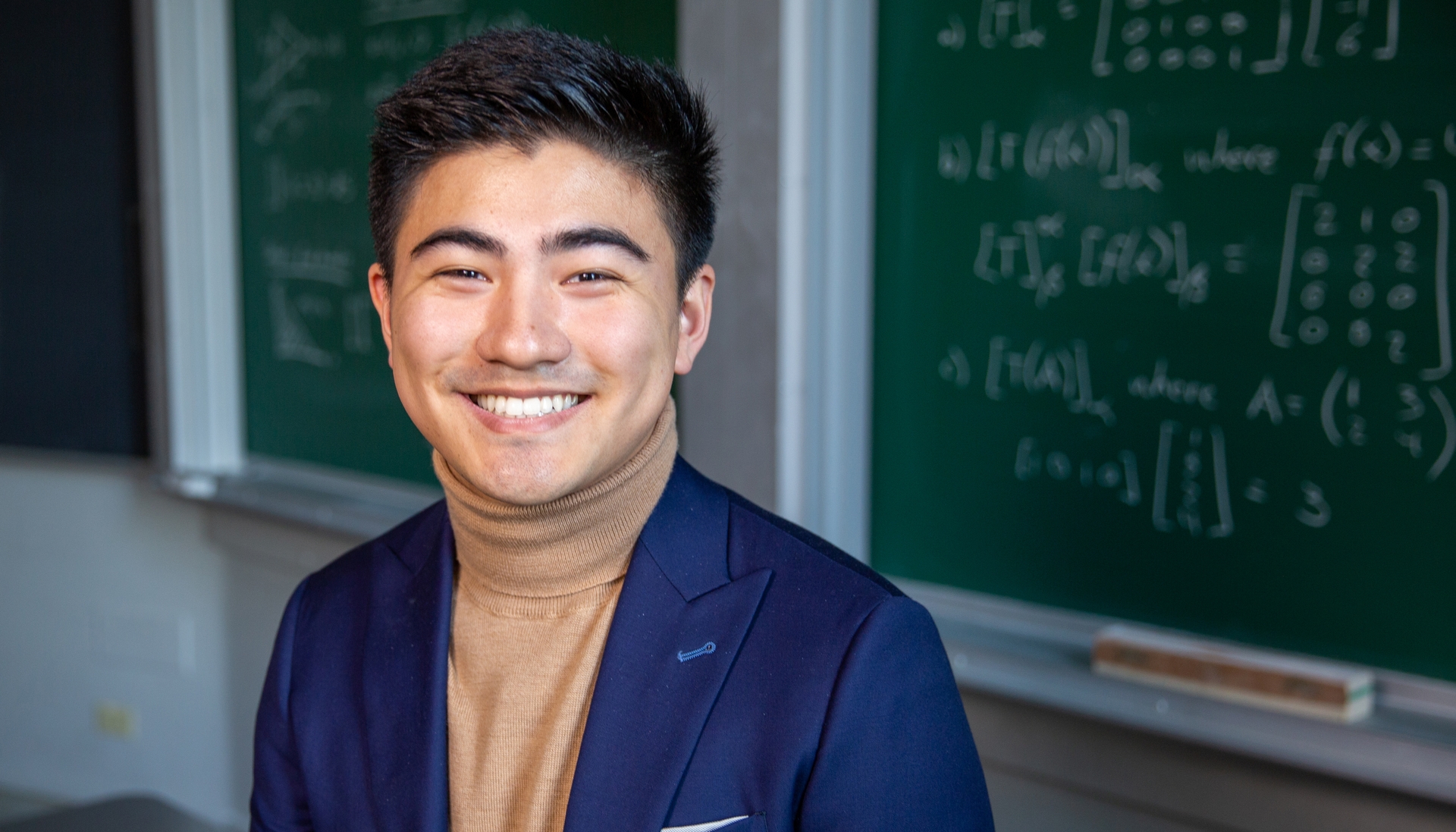
Patrick Farrell, UC Berkeley
May 7, 2024
Growing up in San Francisco’s West Portal neighborhood, Christopher Ying had vague plans to become a lawyer and began prepping by joining the speech, debate and mock trial teams at Lowell High School.
But he credits the University of California, Berkeley, and the opportunities it provided — in particular, to report and edit for the Daily Californian and to tutor incarcerated people at the former San Quentin State Prison — with helping him find his true passion in the legal field: giving a voice to marginalized members of society.
Those only-at-Berkeley experiences — plus a 3.981 grade point average and glowing recommendations from faculty members — have earned Ying the highest honor for a graduating senior, the 2024 University Medal. In addition to receiving the medal and $2,500, he will address the graduating class on Saturday, May 11, at the campuswide spring commencement.
Ying, 23, double-majored in history and mathematics — the former in preparation for a career in law, the latter because of a fascination with math that he’s had since childhood — and completed his coursework last December. He decided to graduate with his friends at spring commencement and used his final semester to study intensely for the Law School Admissions Test (LSAT).
To his surprise and delight, both majors blended with his plans to attend law school. Math was a love he inherited from his parents — both software engineers who had emigrated from China — but its foundation in logic reinforced the fact-based argumentation of history.
“Math and law are sort of kindred subjects in that they both try to create order out of nothing, but at the same time they use what you’ve previously created,” he said. “In law, you look at previous rulings to extrapolate principles that you apply to current legal problems. Math is the same way. And the logical reasoning that you do in math is exactly the logical reasoning that they teach you on the LSAT.”
Ying also had considered becoming a doctor, but said he wasn’t fond of high school STEM classes. Instead, he gravitated toward the humanities and extracurricular activities — speech, debate and mock trial — “which were all sort of law-related,” he said. After arriving at UC Berkeley and beginning his volunteer work at San Quentin, where he taught math through Mount Tamalpais College and edited stories for the San Quentin News, he saw up close the need for a reformed criminal justice system.
Meet the four finalists for the University Medal
Despite personal challenges compounded by the social isolation of the COVID era, each built a community of study and service that was essential to their success at UC Berkeley.
“Law, up to that point, had been an interest for me; after San Quentin, it became a goal — this is really what I want to do,” said Ying, who is now busy applying to law schools.
“My dream right now is to somehow leave a lasting mark in criminal law, whether that be as a criminal defense attorney or creating a foundation that advocates for criminal justice reform,” he said. “That foundation would provide affordable legal services, because a lot of the people that I met in prison, they’re there because they couldn’t afford a good attorney.”
Prison reform
Part of Ying’s desire to help marginalized people find their voices came from his home life, which was sometimes difficult and contentious, but because of a taboo in Chinese culture, never discussed, he said. That motivated him to focus on domestic violence issues when interning as a UC Berkeley sophomore for former San Francisco District Attorney Chesa Boudin, a criminal justice reformer who now heads Berkeley Law’s Criminal Law & Justice Center.
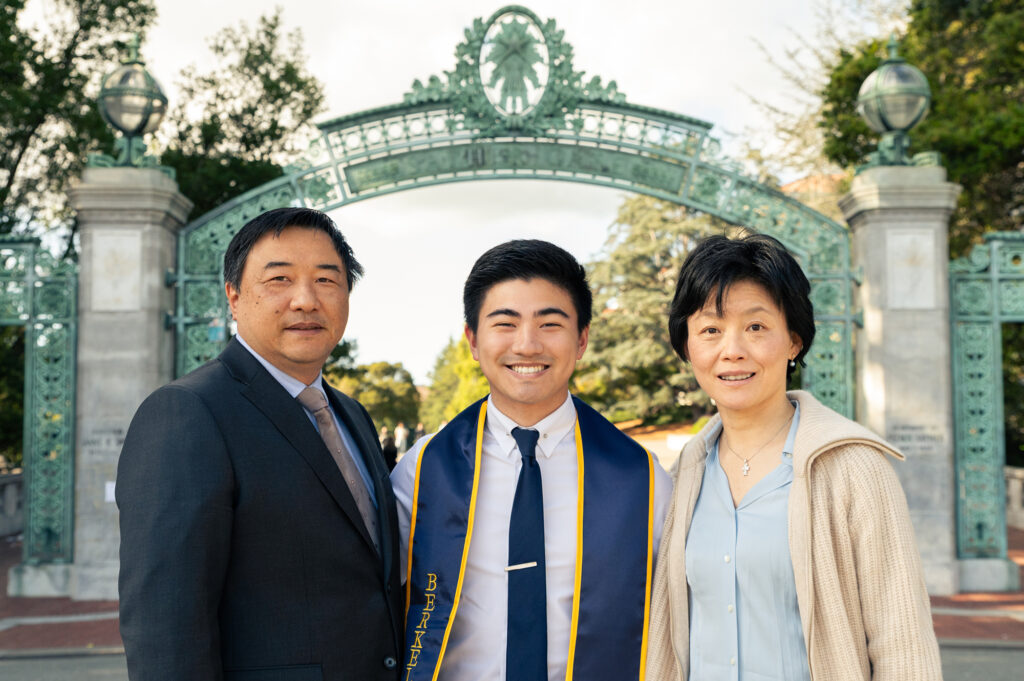
Kyle Garcia Takata
Ying’s concern for the underdog crystallized after he joined the Daily Cal that same year and reported on Indigenous protests by East Bay Ohlone tribes to reclaim their ancestral shellmounds in Berkeley. Over three years, he worked his way up from reporter to city editor to managing editor, then devoted his last year to focusing on diversity, equity and inclusion (DEI) initiatives at the paper as the DEI hiring manager.
It was at the student newspaper that he heard about the San Quentin News Editing Project, a class run by Professor William Drummond at the UC Berkeley journalism school. Undergraduate and graduate students work with incarcerated people to edit, publish and share their news with prisons statewide in the form of a printed newspaper and magazine, a podcast, and radio and TV broadcasts.
Ying admitted it was scary to walk into San Quentin’s prison yard for the first time and hear two metal gates slam shut behind him.
But San Quentin’s newsroom quickly put him at ease.
“They were welcoming. They fist bumped me. They seemed genuinely happy that I was there to help,” he said. “And after the first day, I was hooked. I just had to go back again and get more involved, and then started teaching math there. I’ve taught some of the most interesting people that I’ve ever met at San Quentin.”
Based on conversations with people who are and were detained at San Quentin, Ying wrote his senior thesis about how incarcerated people push for change and resist oppression from within prison, contrary to perceptions that change mostly comes from outside advocates.
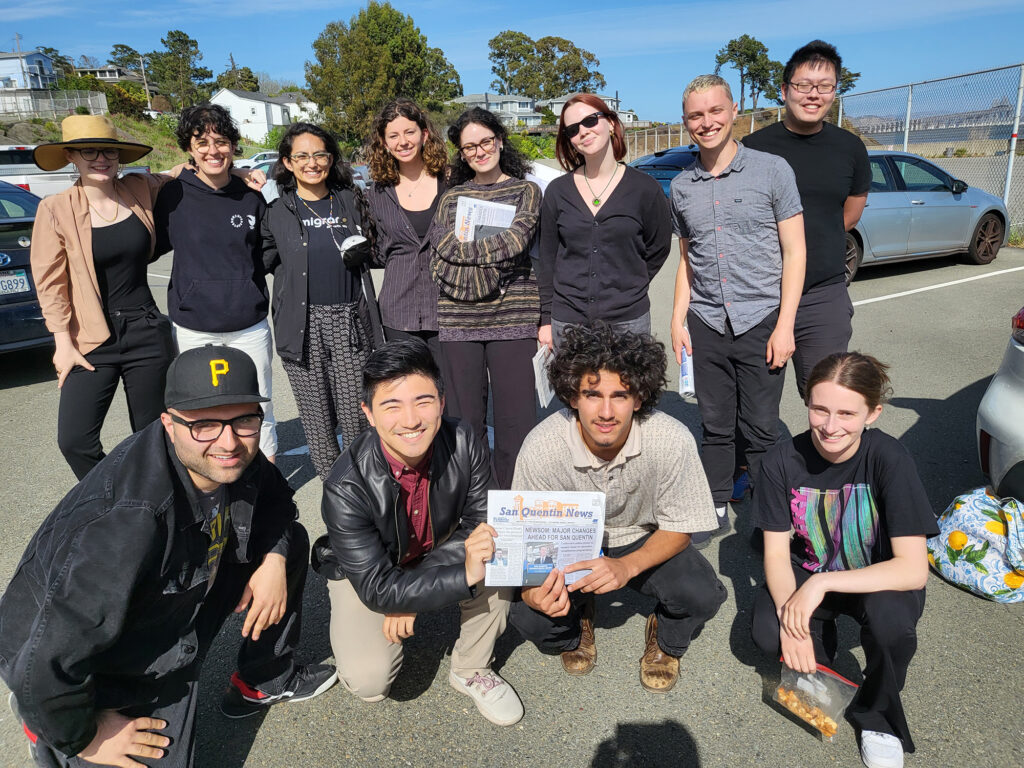
William Drummond, UC Berkeley
“The stories that they told me shifted the perspective of my paper. Oftentimes, they were the ones who started movements to better their conditions for more rehabilitation, to get rid of barriers for reentry into society, to get rid of laws that penalize people unjustly for the things that they have done,” he said.
His thesis earned an A and accolades from his adviser, David Henkin, the Margaret Byrne Professor of History.
In a letter recommending Ying for the University Medal, Henkin wrote, “I was especially impressed by the methodical interviews he conducted, which created from scratch an invaluable archive of inmate perspectives on the institution, but I also commended his eloquent account of the contributions of incarcerated men to the prison reform movement and his ability to frame findings about everyday life in San Quentin within the larger history of resistance to oppressive institutions and regimes.”
Mock trials
Ying displays a theatricality that should serve him well in the courtroom, whether as a criminal defense lawyer or a reform prosecutor, like Boudin, focused on restorative justice. During an interview with Berkeley News, he frequently jumped out of his chair to reenact a memorable teaching moment or courtroom argument. His poise and confidence come, in part, from the five years he participated in mock trial competitions, including every semester at UC Berkeley.
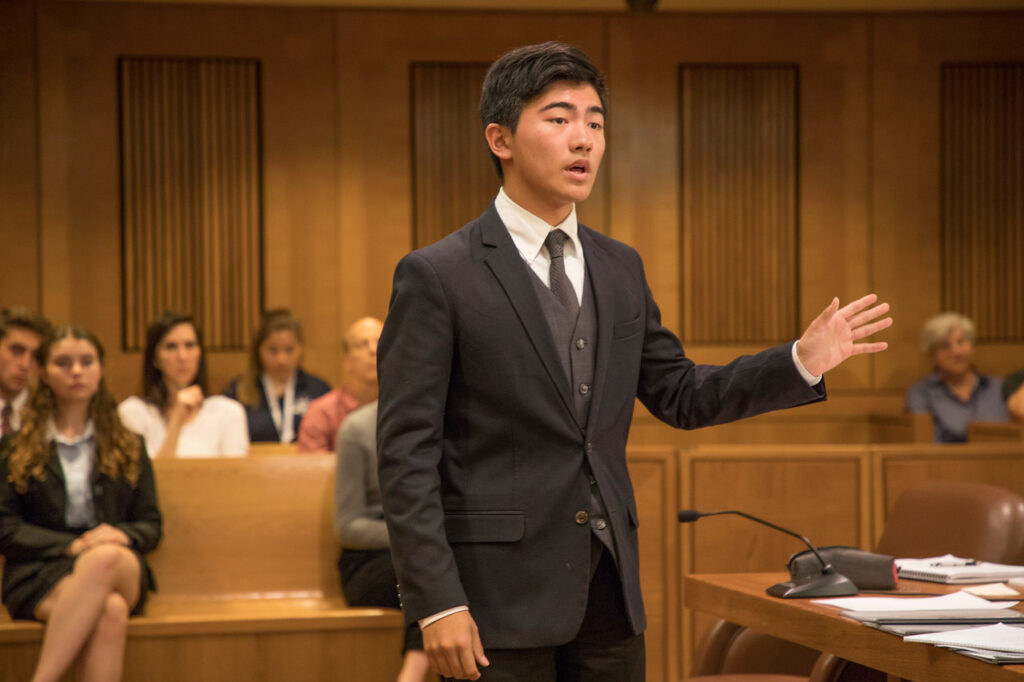
Empire Mock Trial
Mock trial is a team sport — there are 700 collegiate teams nationwide — that simulates courtroom trials and features all the theatrics seen in TV courtroom dramas. Each year, teams get full court files for a hypothetical case and at the end of the year must stage a mock trial with prosecution, defense, witnesses, judges and legal maneuverings. Last year, Ying was president of the Cal Mock Trial group and led one of 48 teams that competed in the 2022-23 National Championship Tournament. While UC Berkeley’s team came in fifth in its division, Ying was awarded All-American status, an individual award given to stand-out performers.
According to head coach Arthur Shartsis, a UC Berkeley alumnus who is an attorney in San Francisco, Ying was “at the very top of this exceptional group of students.”
“From the beginning of his time on the team, he stood out for his intelligence and commitment to hard work,” Shartsis wrote in a letter recommending Ying for the University Medal. “He started on our lowest of four teams (D), and relentlessly applied himself to improve until he became the star witness of the A Team for the past three years, and the star lawyer this year. We have not had another student excel like this in both positions in twenty years.”
Mock trial experience instilled in Ying another life skill — working collaboratively.
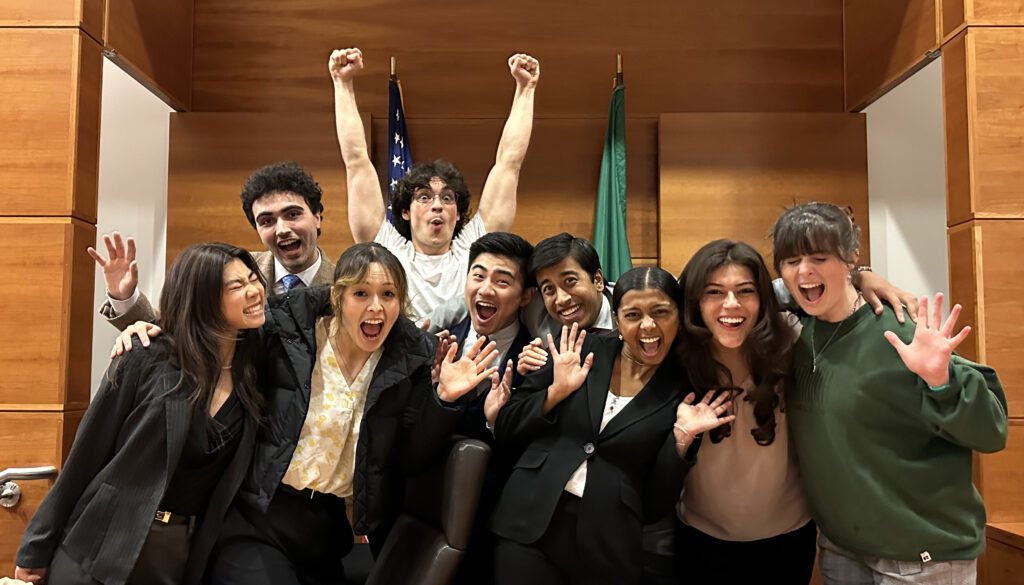
Nicholas Cotter
“Mock trial taught me that chasing a goal for individual achievement at the cost of others is just not healthy. You’re not going to win competitions, and frankly, you’re not going to win the individual award either,” he said. “It’s a teamwork activity. You’re supposed to be helping each other. You’re supposed to be a well-oiled machine.”
Piano and aquascaping
It may seem like Ying has had no down time while at UC Berkeley, but playing the piano — mostly classical music — was his constant refuge, he said. An only child, he learned piano at an early age, pushed primarily by his mother, who never had the same opportunity.
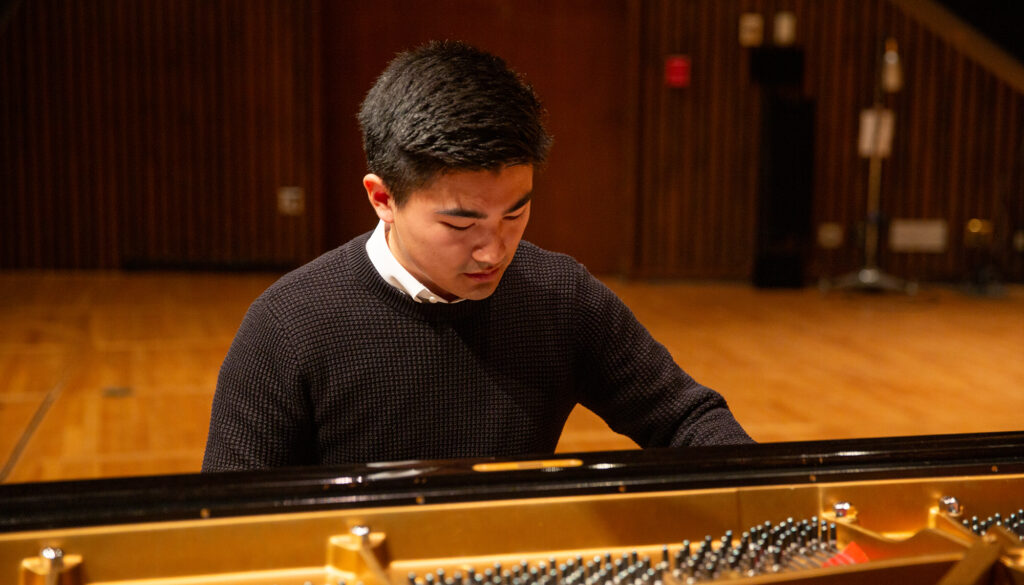
Robert Sanders, UC Berkeley
“I would say that my proudest accomplishment in college was actually not related to my coursework here at all,” he said. “During COVID, I had the chance to teach my mom how to play the piano.”
He said playing the piano is not only “an exercise in self-expression,” but also a way to let his mind work through ideas, whether how to solve a math problem — he described bouncing from the piano in the middle of a piece to finish a math proof — or to explore ideas for a history paper.
“When I’m hacking away at a problem, I get too bogged down in the details, and I forget to take a step back,” he said. “Music allows me to take a relaxing time to do that.”
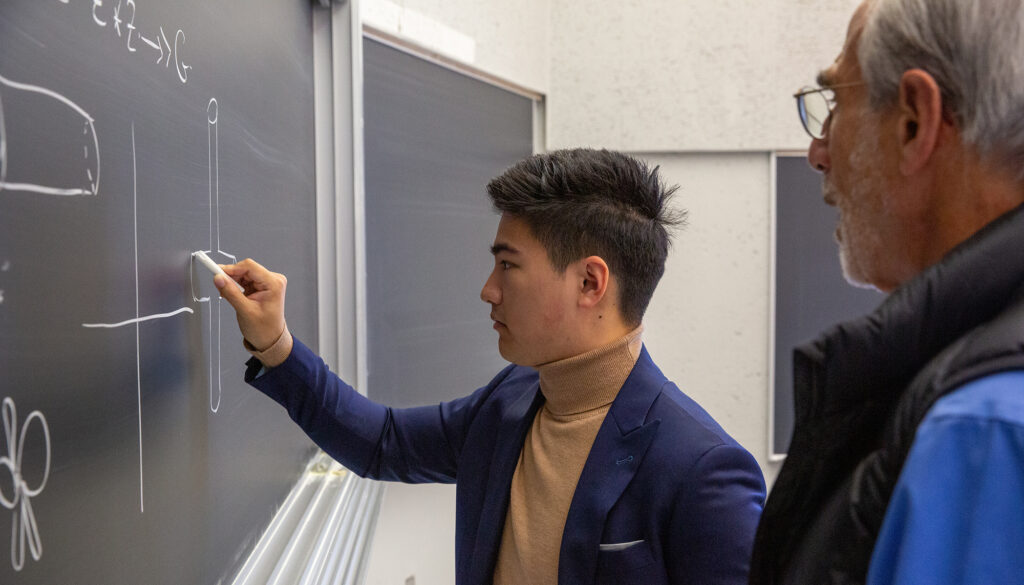
Patrick Farrell, UC Berkeley
Ying, who has a girlfriend of six years, also took up aquascaping — decorating freshwater aquariums — as a hobby. Two aquariums decorate his home in San Francisco, one with a prominent bonsai-like tree for his Siamese fighting fish, or betta, though snails and algae have tried to take over.
“Aquascaping sort of taught me to be comfortable with imperfection,” he said.
As Ying prepares for Saturday’s commencement ceremony at California Memorial Stadium, he recalls the relief he felt being notified, while on a high school choir trip to Seattle, that he’d been accepted to UC Berkeley. It turned out to be the perfect place for him.
“Berkeley is the best school for the particular combination of majors that I chose,” he said. “It is No. 1 for history, … and Berkeley math is one of the most renowned math institutions in the world.
“If it weren’t for Berkeley, I wouldn’t have had the opportunities that I did through San Quentin News, to teach math, or to compete in mock trial at the level that I did. If I could go back in time, I’d tell my younger self, ‘Berkeley is your top choice. Don’t even question it. Just go.'”
RELATED INFORMATION
- Profile of 2023 University Medalist Catey Vera: For top graduating senior, a pirouette from ballet to human rights
- Profile of 2022 medalist Anjika Pai: In top graduating senior, East Coast grit meets Berkeley utopianism
- Profile of 2021 medalist Leyla Kabuli: Top graduating senior a tech whiz and gifted musician